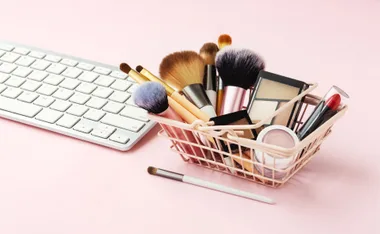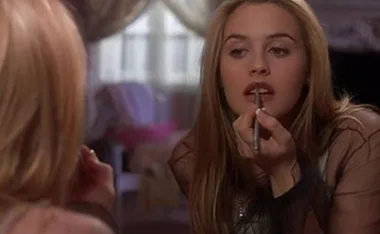August was hair loss awareness month and as it comes to an end we’ve decided to debunk all the hair growth trends circulating on the internet.
Hair loss in women is extremely common with female pattern hair loss affecting almost half of women having symptoms by the age of 50 according to healthdirect.gov.au.
We spoke to Dr Neera Nathan – a board-recognised dermatologist and consultant for the hair brand Vegamour – on our most relevant questions surrounding postpartum and female pattern hair loss.

Vegamour Gro Hair Serum A$105
(Credit: Sephora Australia)Is there a realistic way to prevent postpartum hair loss?
In short, the answer is most likely no.
Unfortunately, postpartum hair loss is extremely common among women.
Postpartum hair loss is a form of telogen effluvium, which presents as diffuse hair fallout and thinning that occurs about 3-4 months after a very stressful event (in this case, childbirth).
After giving birth, a large portion of hair follicles shift from the growth phase to the resting phase (telogen) all at once.
The shedding stops in most women a few months after it starts and should resolve completely by one year postpartum.
So you can’t necessarily prevent it from happening but it will stop!

Rosemary Mint Scalp and Hair Strengthening Oil A$24.
(Credit: Mielle)How should you treat postpartum hair loss?
It is hard to prevent or stop postpartum hair loss once it starts, but it may be possible to prevent hair loss from worsening or to help hair regrow once the shedding stops.
Make sure to avoid excess heat styling or very tight hairstyles which can result in breakage or hair loss.
Eat a varied, balanced diet high in protein to ensure you are getting the nutrients needed to grow healthy hair.
There are topical or oral treatments that may help to stimulate hair back into the growth phase, but especially if you are breastfeeding or planning to get pregnant again soon, it’s best to consult with your doctor before starting any new treatment.

Skinstitut Skin-Inject MTS Derma Roller 0.25mm A$64
(Credit: Adore Beauty)Will rosemary oil help grow your hair?
Rosemary oil is extremely popular on TikTok and within the hair growth community but you have to make sure you dilute it with another oil before using it, some come pre-diluted.
There is some preliminary evidence to suggest that rosemary oil may stimulate hair growth.
In one study, rosemary oil appeared to work as well as topical 2% minoxidil at six months in treating hair loss, but more research is needed.
What ingredients should you steer clear of when dealing with hair loss?
Dr Nathan recommends avoiding products with silicones, sulfates or synthetic fragrances, which may cause irritation or allergy on the scalp, which in turn may interfere with hair growth.
They also suggested to also consider avoiding phthalates, which may disrupt our natural hormones. In general, I recommend using clean products on the scalp, like the Vegamour GRO line.

Eleven Australia Repair My Hair Nourishing Shampoo A$28
(Credit: Adore Beauty)Are derma rollers safe to use at home for hair growth?
Derma rollers create small wounds in the scalp which may help stimulate hair growth and may also help with absorption of any topical serums or products for hair growth.
Dr Nathan thinks they can be a great tool with careful, proper use and antiseptic practices to help prevent infection or too much trauma to the hair or scalp.









